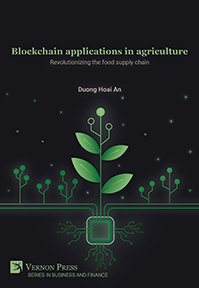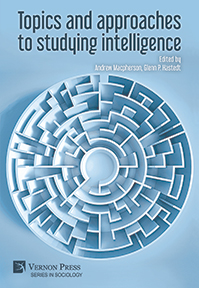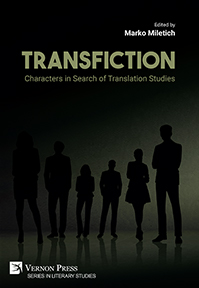Search
Browse
by Publication status
by Subject
Anthropology (26) Art (126) Business and Finance (27) Cognitive Science and Psychology (54) Communication and Journalism (48) Economics (63) Education (70) History (150) Human Geography (22) Interdisciplinary (43) Language and Linguistics (134) Law (16) Music Studies (19) Philosophy (158) Political Science and International Relations (103) Sociology (314) Statistics and Quantitative Methods (21)by Series
Series in Literary Studies (67) Series in Philosophy (59) Series in Education (54) Series in Sociology (45) Bridging Languages and Scholarship (33) Series in Politics (32) Series in World History (32) Series in Language and Linguistics (25) Cognitive Science and Psychology (20) Series in American History (20) Series in Philosophy of Religion (20) Series in Art (19) Critical Perspectives on Social Science (17) Series in Cinema and Culture (16) Series in Critical Media Studies (16) Curating and Interpreting Culture (15) Series on the History of Art (14) Economics (14) Series in Anthropology (13) Series in Business and Finance (13) Series in Music (12) Series in Communication (9) Series in Performing Arts (9) Philosophy of Personalism (8) Series in Law (8) Series on Climate Change and Society (8) Series in Economic Methodology (7) Women's Studies (7) Classics in Economics (6) Series in Economic Development (6) Philosophy of Forgiveness (5) Series in Built Environment (5) Series in Economic History (5) Series in Social Equality and Justice (5) Series in Philosophy of Science (4) Series on the History of Science (4) Serie En Estudios Literarios (3) Serie en Sociología (3) Series in Contemporary History (3) Series in Creative Writing Studies (3) Series in Design (3) The Interdisciplinary Built Environment (3) Serie en Comunicación y Medios (2) Serie en Historia (2) Serie en Música (2) Series in Heritage Studies (2) Series in Innovation Studies (2) Series in Philosophy of Race (2) Serie en Ciencias Políticas (1) Serie en Entorno Construido (1) Serie en Estudios Culturales (1) Serie en Filosofía (1) Serie en Filosofía de la Ciencia (1) Serie sobre Cambio Climático y Sociedad (1) Series in Classical Studies (1) Series in Economics of Technological Change (1) Series in Urban Studies (1)by Language
English Spanishby Author
Browsing with filters

Nostalgia, Anxiety, Politics: Media and Performing Arts in Egypt, Central-Eastern Europe, and Russia
Edited by
Tetyana Dzyadevych, University of Illinois, Urbana-Champaign
Availability: Available 4 weeks
318pp. ¦ $109 £87 €102
This volume shows that the cultural production of nostalgia is a major tool for structuring feelings of resentment and anxiety. The current volume is concerned with collective nostalgia as it has been elicited, channeled, and weaponized by media production agents. The book aims to analyze how the performing arts and media (music, cinema, TV, etc.) generate and shape the feeling of collective nostalgia. It shows how the cultural production of nostalgia reflects distinct social-political contexts and serves particular political purposes. The collective monograph prioritizes cases from the post-Soviet context. However, the authors do not argue that the collapse of the socialist bloc in general, and the USSR in particular, has established some unique nostalgic precedent. The book claims that mechanisms of producing nostalgia and marshaling it for political purposes are broadly similar in most (modern or postmodern) settings. It is not our intent to demonize Russia, nor do we want Russia to be our dominant frame of reference, even if, in most of our cases here, 'nolens volens' appeared first in Russia-centric post-Soviet discourse. The “Russian bloc” has been placed in the second part of the book in order to give primacy to non-Russian subjects.
Blockchain applications in agriculture: Revolutionizing the food supply chain
Duong Hoai An, Thai Nguyen University of Agriculture and Forestry, Vietnam
Availability: In stock
424pp. ¦ $84 £67 €78
'Blockchain applications in agriculture: Revolutionizing the food supply chain' is your definitive guide to the transformative impact of blockchain technology on agriculture and the modern food supply chain. In this comprehensive volume, we begin with “Introduction to blockchain technology,” laying the groundwork for readers of all backgrounds. From there, we delve into the intricate relationship between blockchain and the agriculture industry in “Overview of the agriculture industry”. The heart of the book explores practical applications in agriculture and the supply chain, including “Blockchain-based supply chain management,” “Farming and crop management,” “Livestock management and animal welfare,” and “Food safety and quality assurance.” We also explore how blockchain revolutionizes “Agricultural finance and insurance” and fosters “Sustainable agriculture and supply chain sustainability”. Drawing on “Case studies and real-world examples,” you’ll see blockchain in action, offering invaluable insights for farmers, supply chain professionals, academics, and policymakers. Our forward-looking chapter, “Future Trends and Challenges of Blockchain,” anticipates the evolving landscape of this groundbreaking technology. This book stands out for its depth, practicality, and relevance. It is equally suitable for reference, as a methodological guide, for classroom adoption, or as essential reading for researchers and practitioners in the fields of agriculture, technology, supply chain management, and policy. Whether you’re seeking to optimize farming practices, enhance supply chain transparency, or understand the regulatory implications, 'Blockchain applications in agriculture' equips you with the knowledge and inspiration needed to navigate the future of food production and distribution. Join the agricultural revolution today.
Topics and approaches to studying intelligence
Edited by
Andrew Macpherson, University of New Hampshire
and Glenn P. Hastedt, James Madison University
Availability: In stock
188pp. ¦ $81 £65 €76
The goal of "Topics and approaches to studying intelligence" is to bring into sharper focus the evolving nature of intelligence studies, which is in the midst of a period of significant expansion that is taking place across a number of dimensions. Working on this foundation of past and contemporary analytic intelligence studies, the chapters in "Topics and approaches to studying intelligence" highlight areas of debate and disagreement, provide insight into new areas of study and broaden the methodological toolset used by researchers. Both qualitative and quantitative approaches investigate analysis, alliances, competitive/private sector intelligence, gendered practices of intelligence agencies, the nature of intelligence studies scholarship, accreditation, intelligence disclosure for diplomacy, and the sharing of nuclear-related intelligence.
Pedagogy: Using Television Shows, Games, and Other Media in the Classroom
Edited by
Laura Dumin, University of Central Oklahoma
Availability: In stock
202pp. ¦ $74 £59 €69
This book takes a dive into moving beyond the essay as the only method for teaching and learning content. Authors range from instructors in K-12 to instructors in higher education and look at concepts as varied as using VR technologies to provide immersive experiences to students to use an app to help supplement teaching. Instructors in a variety of fields, both in and out of the writing classroom, may find project and assignment ideas to argue in their own classrooms. Instructors looking to provide a transformative learning experience in a new way will find lots of options here.
Transfiction: Characters in Search of Translation Studies
Edited by
Marko Miletich, SUNY Buffalo State University
Availability: In stock
138pp. ¦ $78 £62 €73
This book explores the uses of translation, translators, and interpreters in fiction as a gateway to introduce issues related to Translation Studies. The volume follows recent scholarship on Transfiction, a term used to describe the portrayal of translation (both a topic and a motif), as well as translators and interpreters in fiction and film. It expands on the research by Kalus Kaindl, Karleheinz Splitzl, Michael Cronin, and Rosemary Arrojo, among others. Although the volume reflects the preoccupation with translator visibility, it concentrates on the importance of power struggles within the translatorial task. The volume could be an invaluable tool to be used for pedagogical purposes to discuss theoretical aspects within Translation and Interpreting Studies.






